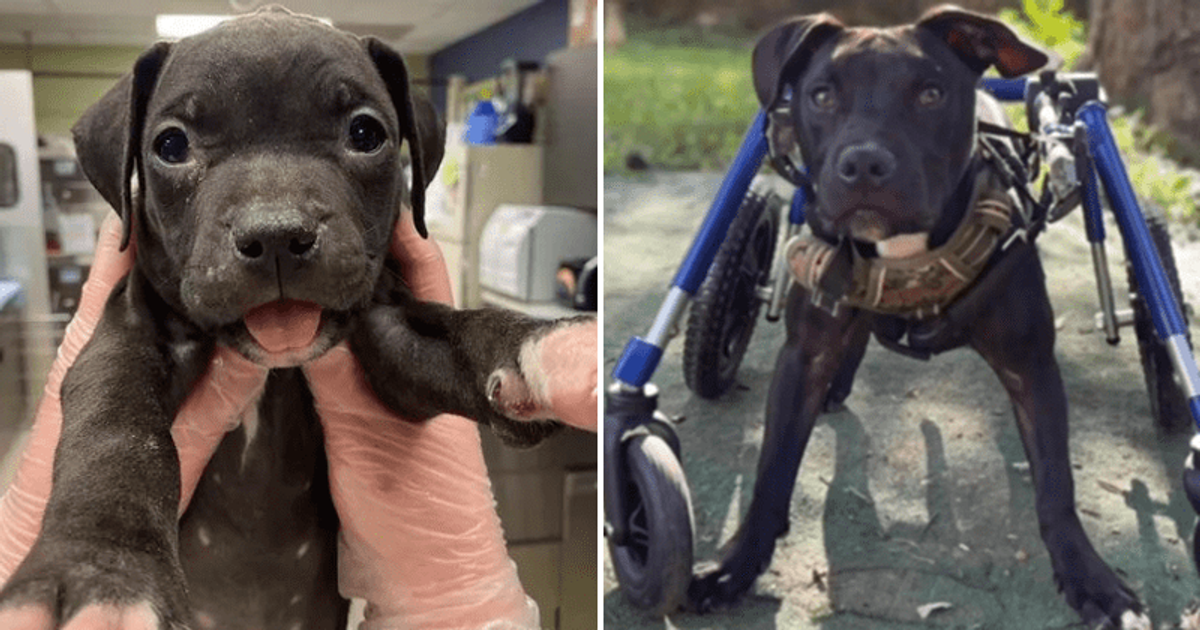Sit Down Dog Wheelchairs

Common Corgi Health Complications
In bringing a corgi into your home, you should be aware of the two varieties of corgis currently recognized by the AKC (American Kennel Club). The Cardigan Welsh corgi is the oldest type and is a herding dog. This breed has existed for over a thousand years and has worked alongside humans during that time.
A separate breed called the Pembroke Welsh corgi likely descended from herding dogs and can be differentiated from the Cardigan by its ears, tail, and general size. The smaller of the two is the Pembroke, which has pointed ears instead of round. This breed is also the shorter of the two, while the Cardigan is taller with a longer, more fox-like tail. Though these corgi breeds differ, they do share common Corgi health complications that every corgi owner should know to better understand these dogs.
Common Corgi Health and Mobility Problems
Hip Dysplasia in Corgis

One of the most common issues with corgis is hip dysplasia. This condition affects hip joint development and can cause loss of joint function. Hip dysplasia in corgis usually takes awhile to develop and present symptoms. Telltale signs of hip dysplasia include decreased range of motion, issues standing and jumping, obvious pain or stiffness, and a change in the way the dog walks. Swaying is also an indication that hip dysplasia is occurring.
Depending on the severity of this condition, there are options for treatment your veterinarian can fill you in on such as anti-inflammatory medication for comfort, physical therapy, surgery, and support equipment. Walkin’ Pets offers a variety of slings, harnesses, and pet wheelchairs for sale aid for easing hip dysplasia discomfort as well as sustaining mobility for permanent changes that affect corgis. A wheelchair can allow the dog to utilize the strength in their front legs while not adding pressure to the affected hind quarters.
Progressive Retinal Atrophy
Progressive Retinal Atrophy (PRA) is a degenerative condition that affects a dog’s photoreceptors in the eyes. Although PRA occurs in many different breeds, the rcd3 type is a specific form of PRA impacting the Cardigan Welsh Corgi. Over time their vision will degrade, eventually leading to blindness. Though PRA isn’t painful, it certainly could contribute to a dog’s declined quality of life. Warning signs can include: nervousness about being in the dark, bumping into things when lighting is dim, abnormally dilated eyes, or a very reflective appearance to the eyes when light shines on them.
Luckily cases of PRA in corgis are going down. Through responsible breed practices, monitoring of genetic carriers, and testing future corgi owners may not have to worry about PRA.
Degenerative Myelopathy

Degenerative myelopathy is a serious nerve and spine condition commonly developed in corgis. It affects the central nervous system, spine, and brain stem, causing problems such as posture issues or muscle atrophy.
Pembroke Corgis have a very high risk of developing Degenerative Myelopathy or DM. DM is very similar to ALS or Lou Gehrig's disease in humans. DM is a pain-free disease that degrades the nerves of the spinal cord, causing paralysis over time, your corgi may start to exhibit symptoms when they get to 8 years old or older. Unfortunately, there is no cure for DM, but studies show that early intervention with physical therapies such as laser therapy and hydrotherapy can slow the progression of the disease. In addition, you can test your corgi to find out if they are a carrier of the DM gene.
A corgi with degenerative myelopathy may experience partial or full limb paralysis or a decrease in muscle mass. There’s no treatment available to reverse DM, but the condition can be managed with medication and use of a pet wheelchair. The use of a corgi wheelchair will promote mobility and slow down the progression of degenerative myelopathy in your corgi.
Corgi IVDD
Due to a corgi's build and long back they are prone to spinal and back problems. Intervertebral Disk Disease or IVDD is a prevalent spinal condition impacting the corgi breed. According to Dr. Michelle Burch, DVM the IVDD in corgi's may be more common than you might think, "Approximately 15% of corgis will develop intervertebral disc disease in their lifetime."

Unlike DM, which has a higher instance in Pembroke Corgis, IVDD is slightly more common in Cardigan Welsh Corgis, impacting up to 20% of the breed. IVDD affects your corgi's spine and the cushion between the vertebrae, allowing your dog to run and play without pain. Over time the cushion hardens in dogs with IVDD and makes movement painful, and dogs become more likely to herniate or rupture their spines. The condition can cause temporary or permanent paralysis
There are two types of IVDD your corgi may experience. Type I IVDD causes disk ruptures that can leave a corgi suddenly paralyzed for hours to days. Usually impacting younger, active dogs. It's not uncommon for IVDD to leave a corgi permanently paralyzed. The second IVDD variation is Type II. Type II IVDD is age-related disk degeneration impacting senior corgi mobility. Symptoms of Type II IVDD may be occur gradually with the corgi showing few signs of pain.
Dr. Burch says that, "corgis paralyzed from IVDD have an 80 to 90% chance of walking again if deep pain is present at the time of surgery. Patients with no evidence of deep pain within 48 hours of injury have a 50% chance of walking again. With no evidence of deep pain for more than 48 hours after injury, dogs have a 5% chance of walking again."
Surgery and crate rest can be key to IVDD recovery, however many corgis with IVDD will need the support of a corgi wheelchair for the rest of their life.
Eye Disease and Blindness
Corgi's have been know to have cataracts, glaucoma, and Progressive Retinal Atrophy or PRA. These diseases will cause progressive blindness in your Corgi.
Cataracts
In older Pembroke Corgis, you will want to watch out for the lenses of their eyes, if they start to look cloudy instead of clear, cataracts may be the cause. However, many dogs adjust well to losing their vision and get along just fine with some help.
Progressive Retinal Atrophy
PRA is a degenerative condition that affects the photoreceptors in a dog’s eyes, degrades vision over time. PRA will typically first start as night blindness and progress from there.
Arthritis
Corgis are bred with achondroplasia, a genetic mutation that causes the limbs to stop growing prematurely. Achondroplasia gives your corgi its cute, stubby legs, which makes them much more likely to develop arthritis. You can manage the severity of arthritis by controlling your pup's weight! Corgis love to run and play. Keep your corgi's weight managed to avoid putting excess pressure on their joints.
Corgi Wheelchairs: Maggie's Story
The wheelchair I purchased for Maggie, our 12-year-old Corgi, arrived! Maggie watched as I assembled the wheelchair. She went right into the frame when I was done with no issues, and she took a short walk that night. Now when I say, “Let’s go for a walk,” Maggie can’t get into the wheelchair fast enough! In only one week, she can go backwards, forwards, and turns around. I am very satisfied with this product. (So is Maggie!)
- Melinda Hafer
Helping Your Corgi Live Their Best Life
When it comes to common corgi health complications, it seems that the things that make them so cute –such as their build and leg height—are unfortunately also things that cause them pain. Staying vigilant in watching for warning signs will help you aid your corgi immediately if these problems should arise. The better corgi health problems are managed, the greater their quality of life your corgi will have.








